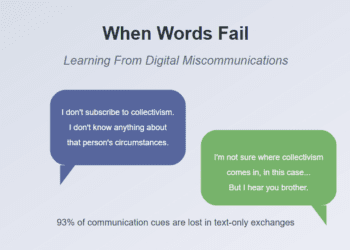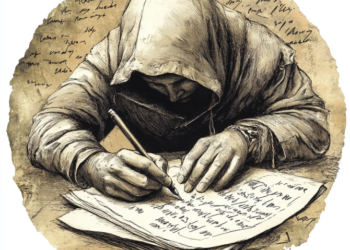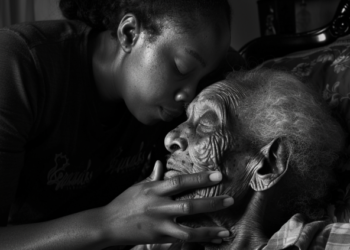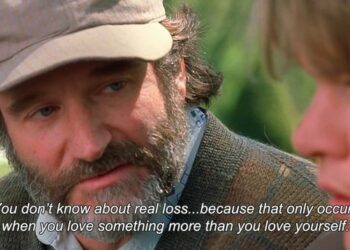“Embrace the unknown, for it is through the veil of mortality that we find the true essence of life.”
Death, the universal phenomenon that awaits us all, has been a topic of contemplation and fear throughout human history. The fear of death is a natural emotion, deeply ingrained in the human psyche. It’s a fear that can manifest in various ways, impacting our mental, emotional, and even physical well-being. However, in the face of personal encounters with death and loss, one can learn to cope and ultimately embrace the concept of mortality. This article delves into the profound theme of the fear of death, drawing inspiration from personal experiences and offering insights on how to navigate and cope with this innate fear.
Turning Darkness into Light: The Personal Journey
Death has woven a tapestry of loss throughout my life’s journey. The departure of my mother when I was just 11, the responsibility of burying my father at the tender age of 19, the tragic loss of a childhood friend, and the heart-wrenching murder of my ex-girlfriend at 18; these experiences have etched deep scars on my heart. The passing of my grandparents, my aunt, and several friends further reinforced the transient nature of life. Yet, amid the sorrow and grief, I found a transformative power—an ability to embrace death not as an end, but as a continuation of life’s cycle.
The Liberation in Celebration
Through these painful experiences, I’ve come to view funerals not as somber occasions, but as celebrations of life. A time to honor the memories and legacies of those who have moved on. This perspective shift stems from the realization that death is an integral part of existence, an eventuality we all share. By celebrating the lives lived, we celebrate the vitality of human experiences, the impact each individual leaves behind, and the connections that transcend mortality.
“Death is not extinguishing the light; it is putting out the lamp because the dawn has come.”
- Rabindranath Tagore
Deconstructing the Fear: Understanding Mortality

To effectively cope with the fear of death, it’s essential to first understand its origins. Evolutionary psychology suggests that this fear is hardwired into our brains as a survival mechanism. Our ancestors who feared death were more cautious and survived to pass on their genes, hence engraving this apprehension in our DNA.
The Role of Survival Instincts
For more content, check out Harnessing the Power of Survival Instincts: Awakening the Sleeping Giants Within Us.
This deeply rooted survival instinct often manifests as a fear of the unknown, as death itself is one of the greatest mysteries. By acknowledging this instinctual response, we can begin to untangle the complex web of emotions that surround our fear of death.
Cultivating Resilience: Strategies to Cope
Navigating the labyrinth of death-related anxieties requires resilience, self-awareness, and proactive strategies. Here are some practical steps to help cope with the fear of death:
1. Embrace Spirituality and Philosophy
Engaging with spirituality and philosophy can provide solace and a broader perspective on mortality. Exploring belief systems, contemplating the afterlife, and finding meaning in the cycle of life and death can offer comfort and purpose.
Incorporate moments of reflection into your daily routine. These moments can serve as anchors, reminding you to embrace life’s beauty while acknowledging its impermanence. Whether it’s through meditation, prayer, or simply spending time in nature, the practice of connecting with something greater than yourself can bring a sense of peace and acceptance.
2. Practice Mindfulness and Present Living

The fear of death often stems from worries about the future or regrets from the past. Practicing mindfulness, meditation, and present living can anchor us in the present moment, reducing anxiety about the uncertain future.
Mindfulness techniques, such as deep breathing exercises and guided meditation, can help you detach from anxious thoughts about mortality. By focusing on your breath and the sensations of the present moment, you can create a sense of calm and gradually detach from the fear of what lies ahead.
3. Nurture Relationships
Human connections are a testament to our existence. Cultivating strong relationships with family, friends, and loved ones can create a support network that alleviates the fear of dying alone and fosters a sense of belonging.
Initiate open conversations with your loved ones about death and its role in life. Share your experiences and fears, and encourage them to do the same. By acknowledging these emotions together, you can build a deeper understanding and a shared sense of support.
4. Face Your Fears
Confronting the fear of death through open conversations, journaling, or therapy can help demystify the subject and gradually reduce its power over us.
Journaling can be a powerful tool for self-reflection and confronting your fears. Write down your thoughts, feelings, and questions about death. As you delve into your thoughts on paper, you may find that the fear loses its grip and becomes more manageable.
5. Educate Yourself
Knowledge can be a powerful antidote to fear. Educate yourself about the various cultural, religious, and philosophical perspectives on death. Learning about different beliefs and practices can provide a broader understanding of the concept and help reduce anxiety.
6. Create a Legacy
Consider what legacy you want to leave behind. Engaging in activities that contribute positively to your community or society can provide a sense of purpose and lessen the fear of insignificance.
7. Engage in Self-Care
Taking care of your physical and mental well-being can improve your overall outlook on life, including your perception of death. Regular exercise, a balanced diet, and proper sleep can all contribute to a healthier mindset.
8. Seek Professional Help
If your fear of death becomes overwhelming and interferes with your daily life, consider seeking support from a mental health professional. Therapy can provide a safe space to explore your fears and develop coping strategies.
9. Embrace Transcendence
Explore creative outlets that allow you to express your thoughts and emotions about death. Writing, art, music, and other forms of expression can help you process complex feelings and find solace.
10. Practice Gratitude
Gratitude for the present moment and the experiences you’ve had can help shift your focus from fear to appreciation. Each day is an opportunity to live fully and appreciate the beauty of existence.
The Parental Importance in Shaping Perceptions
For more content, check out Parental Importance.
Block Quote:
“Parents play a pivotal role in shaping their children’s perceptions of death. Open and age-appropriate discussions about mortality can foster a healthier understanding and acceptance of this inevitable aspect of life.”
Final Thoughts: Embracing the Inevitable
Embracing the fear of death doesn’t require us to become fearless, but rather to acknowledge and confront our anxieties. Just as darkness gives way to dawn, our fears can transform into profound lessons about life’s impermanence. My personal journey through loss has taught me that death is not an adversary to be feared, but a reminder to live life fully and cherish every moment.
Let us heed the wisdom of those who have gone before us, those who have experienced the beauty and fragility of life. By facing our fears, nurturing our relationships, and seeking understanding, we can gradually free ourselves from the shackles of the fear of death and embrace the unknown with open hearts.
As I reflect on my experiences and the lessons learned, I am reminded of the poignant words of Robert Greene:
“The future is uncertain, but that can be a beautiful thing when we realize that anticipation and preparedness are keys to navigating it.”
So, let us navigate the uncertainty with anticipation, preparedness, and an unwavering appreciation for the life we have.
References:
Internal Links:
















































